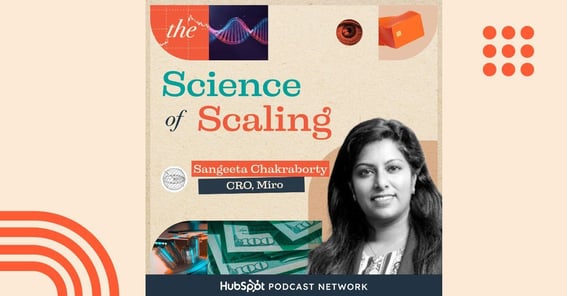Scaling LinkedIn: Mike Gamson on Building a Billion-Dollar Business
Mike relates the key sales and scaling strategies involved in LinkedIn’s success, focusing on capital efficiency and collecting customer feedback to help guide product design.

Mike relates the key sales and scaling strategies involved in LinkedIn’s success, focusing on capital efficiency and collecting customer feedback to help guide product design.

In this kickoff of Season 3 of "The Science of Scaling," Mark Roberge dives into the early days of LinkedIn with Mike Gamson, who played a pivotal role as a sales leader and senior vice president. This discussion takes us through the strategic thinking and scaling processes that helped LinkedIn navigate its early challenges and opportunities. This discussion provides valuable lessons for entrepreneurs and leaders aiming to balance product development with sales strategy effectively. By focusing on alignment between mission, market potential, and strategic execution, LinkedIn stands as a compelling case study in orchestrating startup growth with precision and foresight.
Mike Gamson is an experienced executive, sales leader, and strategist. He is currently a managing partner of Permanent Capital Partners as well as a vice chairman of the board of biotech company Evozyne where he was previously CEO. Before that, he was CEO of legal software company Relativity, but his longest experience was 11 years with LinkedIn, where he held various leadership roles, including SVP of Global Solutions.
These are the key takeaways from Mike’s interview.
Mike reflects on the invaluable advice he now wishes he could share with his younger self: If a venture doesn't have the potential to be a multi-billion-dollar business, it might not be worth the pursuit. This notion, deeply embedded by LinkedIn's founders like Reid Hoffman, underscores the importance of focusing on opportunities that align with a larger, sustainable mission. As Mike emphasizes, spending valuable resources on limited market potentials can be the greatest enemy to startup ambitions.
Mark highlights an often-missed connection: the best practices of conducting customer interviews should seamlessly integrate with developing a sales playbook. For LinkedIn, even when the product was merely conceptual, establishing how selling it would work was crucial. The podcast details how LinkedIn mirrored the iterative process of product development with sales strategy creation, ensuring that both facets informed each other as they built LinkedIn's initial offering—Recruiter.
In today's startup ecosystem, there's a narrative that equates success with rapid scaling and significant capital burn. However, LinkedIn offers a counter-narrative with its capital-efficiency approach. With less than $100 million raised and a significant portion of it untouched, LinkedIn exemplified careful spending, emphasizing profitability alongside user and member growth.
Mike describes LinkedIn's rigorous process of market validation before launching its Recruiter product. By involving prospective customers early and revising mockups based on their feedback, LinkedIn ensured its offerings were precisely what the market needed. This practice of securing commitments from clients before building features is a powerful lesson in product-market fit and resource optimization.
The discourse touches on philosophical shifts—particularly the belief once held in Silicon Valley that ideal products would never need sales teams. Mike's experience counters this notion, illustrating that having a robust sales process is not a sign of product failure but rather a strategic move to enhance engagement and revenue generation. His gamble on initiating a sales team for LinkedIn proved hugely successful and set the stage for scaling their revenue operations.
As Mark wraps up the episode, the importance of mentorship and continuous learning surface as vital themes. Both Mark and Mike emphasize the value of guidance from seasoned leaders in navigating complex business landscapes.
~~~~~
Note: The insights shared in this podcast were initially distilled through advanced AI summarization technologies, with subsequent refinements made by the writer and our editorial team to ensure clarity and engagement.
Every week during a season, host Mark Roberge—co-founder and Managing Director at Stage 2 Capital and a senior lecturer at the Harvard Business School—interviews some of the tech industry's most successful and renowned leaders and managers in the areas of sales growth and Go-to-Market strategy. This is a HubSpot for Startups original podcast and part of HubSpot's Podcast network. It's available on Apple, Spotify, and anywhere you get podcasts.

Sangeeta shares her valuable experience as Miro's CRO to give actionable tips on how startups can successfully transition from product-led to sales-led growth.

Jeff shares insights on strategic planning, data-driven decisions, and effective leadership to drive sustainable growth building a well-structured sales organization.

Carrie Bosworth, Chekr’s SVP of Sales, offers insights into choosing sales teams, clarifying messaging, and focusing on long-term planning to help businesses transition to outbound sales.
